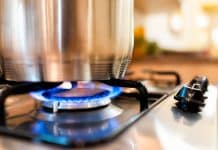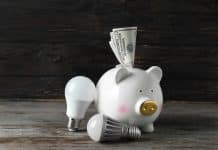
Utility bills consume a great deal of the average household budget. Some people pay their bills diligently every month without wondering about rates and savings, but many would like to find ways to cut those costs. One way to see exactly where the money goes is to conduct a home energy audit (HEA). Let’s look at how this process can show exactly where to make improvements and affect bottom-line savings changes.
HVAC Efficiency
A home energy audit is an assessment of how much energy is lost rather than being captured and saved in the home. This can provide valuable information since lost energy can blow the monthly utility budget out of whack!
An analysis of how well the heating, ventilation and air conditioning (HVAC) system is working will almost certainly be a part of a good HEA. Older systems may use more electricity or not work as well as an energy-efficient model would.
A dirty filter, for example, can contribute to a lack of proper airflow and while it’s a simple fix, it can affect the efficiency of the furnace. A complete heating and cooling inspection to check for faulty parts and determine proper operation will help determine if an upgrade is needed.
How Well Appliances Are Working
One thing that a home energy audit can reveal is how well appliances are operating. An older, outdated model of almost any appliance can drain more electricity and raise utility bills. A voltmeter that measures electrical energy may be used to check for proper operation. Recommendations may include an energy-saving model that will draw less power. Sometimes improper installation of a new appliance can also be to blame.
If Smart Lighting Is a Good Option
Both interior and exterior home lighting plays an important role in energy saving. Of course, lighting can provide protection against unwanted visitors, but depending on how old the fixture is, and what type of bulb is being used, it can also be a hidden energy hog. A home energy audit can help determine how much electricity is being used and how much it’s costing. Recommendations may include the installation of a smart hub for better control over lighting, even when the homeowner is away.
Places Where Air Is Escaping
Proper air circulation inside the home helps prevent mold and condensation buildup, but you don’t want warmed or cooled air escaping. A home energy auditor can test the airflow in various areas in the home including:
- In and around doors and windows
- Walls, siding and roofing area
- Throughout the attic and basement
Using a blow fan to generate airflow, the home can be pressurized and measured as it’s pushed out. This tests for hidden leaks and shows what areas need insulation and what doors or windows need to be replaced or have new weather stripping added.
Homeowners can do a home energy audit if they have the right tools, but most call in a pro for a precise analysis. Any time is a good time to check a home’s energy productivity. Pinpointing issues now gives you a head start on creating a more comfortable home and the result could be a net profit in savings.
~Here’s to Your Financial Health!


















